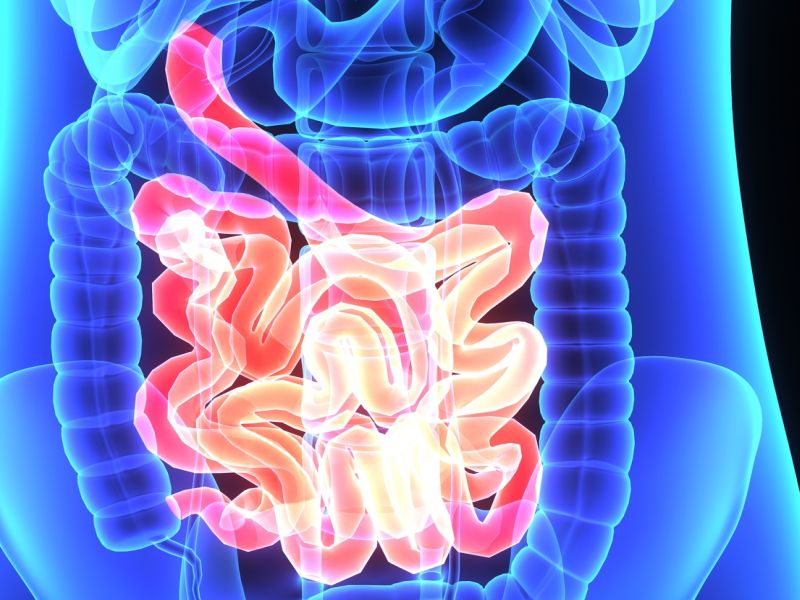

Human Gut Germs Dictated by Diet
Lifestyle advances over thousands of years may have altered people's microbial makeup, study suggestsThursday, August 24, 2017

THURSDAY, Aug. 25, 2017 (HealthDay News) -- What you eat, or don't eat, affects the mix of germs in your digestive tract, new research indicates.
Thousands of microbial species thrive in the human intestine, helping people digest fiber and make vitamins and other molecules. They also help strengthen the immune system and protect against potentially harmful bacteria, Stanford University School of Medicine researchers say.
The rise in farming some 15,000 years ago dramatically changed the human diet, the researchers noted. And in just the last 100 years, people have become increasingly sedentary and less likely to consume fiber-rich whole grains, fruits and vegetables.
Antibiotics, cesarean sections and other lifestyle changes have also helped shift the composition of microbes in the human gut, the study authors added.
To see how "progress" may have affected microbial diversity, the researchers examined seasonal changes in the gut microbes of the Hadza in Tanzania -- one of the world's last remaining traditional hunter-gatherer populations.
The Hadza rely primarily on meat, berries, baobab (a fruit), tubers and honey. The researchers found their gut bacteria different and more diverse than the gut bacteria of those living in the cities of industrialized countries.
"The 100 to 200 Hadza sticking to this routine will possibly lose it in a decade or two, maybe sooner. Some are using cell phones now," senior study author Justin Sonnenburg said in a Stanford news release.
"We wanted to take advantage of this rapidly closing window to explore our vanishing microbiota," said Sonnenburg, an associate professor of microbiology and immunology.
Stool samples from the Hadza showed their mix of gut microbes changes with the seasons and their diet.
The significant modifications made to the human diet over the past 10,000 years could help explain the loss of diversity in the germs residing in the typical modern digestive tract, the study suggests.
"Surviving hunter-gatherer populations are the closest available proxy to a time machine we in the modern industrialized world can climb into to learn about the ways of our remote human ancestors," Sonnenburg said.
"Our own microbiota can change significantly from day to day, or even within hours, in response to what we've been eating," said Sonnenburg. "Fiber's all that's left at the very end of our digestive tract where these microbes live, so they've evolved to be very good at digesting it. The Hadza get 100 or more grams of fiber a day in their food, on average. We average 15 grams per day."
The findings were published Aug. 25 in the journal Science.
SOURCE: Stanford University School of Medicine, news release, Aug. 24, 2017
HealthDay
Copyright (c) 2017 HealthDay. All rights reserved.
News stories are written and provided by HealthDay and do not reflect federal policy, the views of MedlinePlus, the National Library of Medicine, the National Institutes of Health, or the U.S. Department of Health and Human Services.
- More Health News on
- Dietary Fiber
- Nutrition








































No hay comentarios:
Publicar un comentario